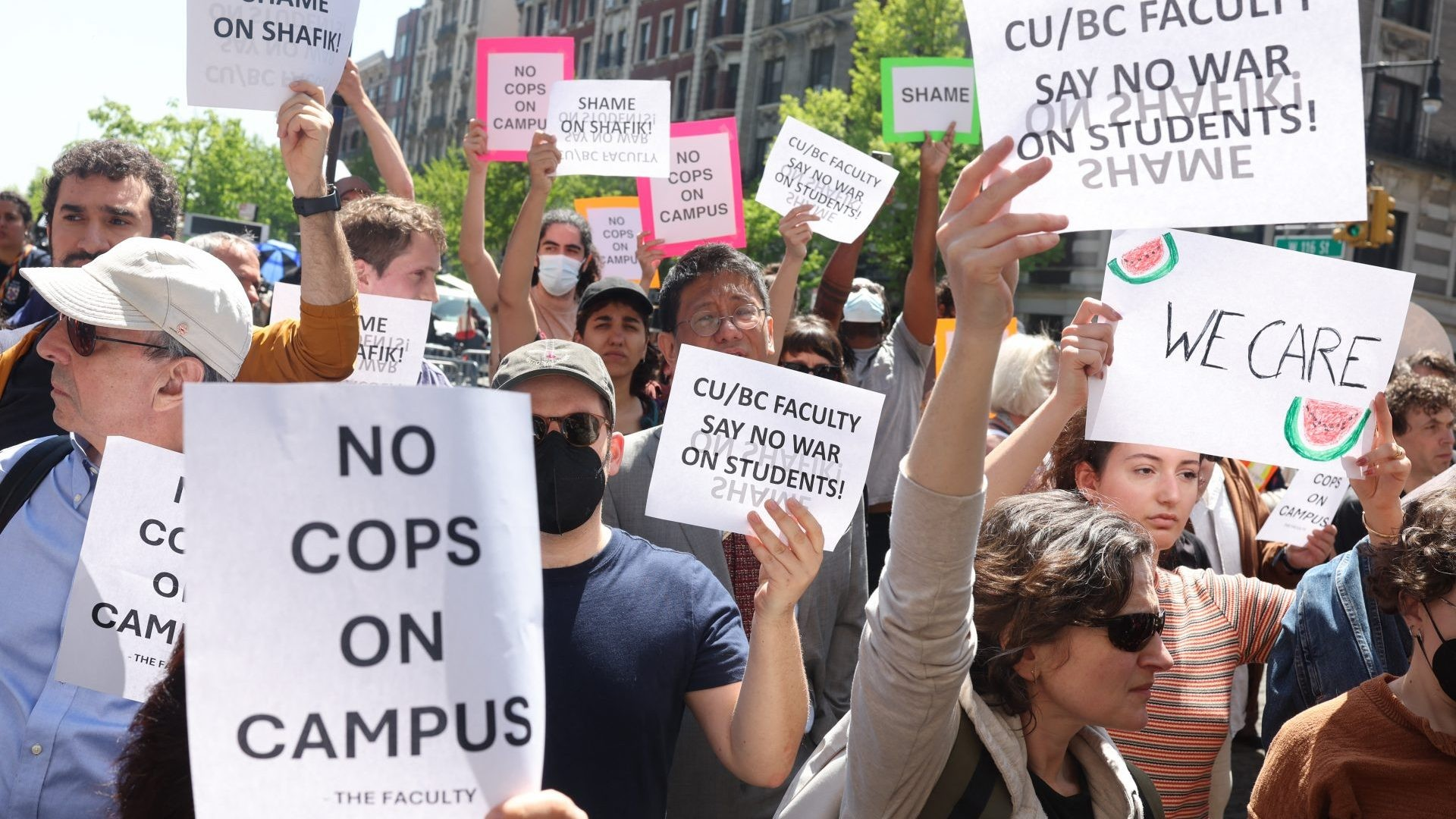The students at Columbia University are protesting for several reasons related to the conflict in Gaza and issues of divestment. Here’s a summary of the situation:
- Divestment and Pro-Palestinian Stance: The protests began with students demanding that the university divest from companies with ties to Israel. They set up an encampment on the campus lawn to occupy it until their demands were met.
- Response to Antisemitism: The university president, Minouche Shafik, was called to testify before Congress regarding Columbia’s response to antisemitism, which has been a contentious issue amid the pro-Palestinian protests.
- Arrests and Suspensions: Over 100 students were arrested for refusing to leave the protest encampment, and some have been temporarily suspended, including a student who is the daughter of US congresswoman Ilhan Omar.
- Virtual Classes: In response to the ongoing protests and arrests, Columbia University announced that it would hold classes virtually to try to “reset” the situation on campus.
- National Impact: The events at Columbia have sparked solidarity protests on other US college campuses and have become a driving force behind a growing movement.
The situation is complex and involves a mix of local campus issues, national politics, and international conflicts. The university’s administration and the student body are currently in a standoff, with the outcome still uncertain.
What are the specific demands of the protesters?
The specific demands of the protesters at Columbia University are centered around three main issues:
- Divestment: The protesters are demanding that the university divest from corporations they believe profit from Israel’s war on Gaza. They want Columbia to pull out of investments in certain companies made with money from the university’s endowment fund.
- Financial Transparency: The students are calling for greater transparency regarding the university’s investments. They want the university to disclose their investments in companies and organizations linked to Israel and its war on Gaza.
- Amnesty: The protesters are seeking full amnesty for all students, staff, and faculty disciplined for opposition to Israel’s war and support for Palestine. This includes those who have faced arrest or suspension during the protests.
These demands reflect a broader movement on college campuses across the United States, where students are expressing solidarity with Palestinians and advocating for ethical investment practices by their institutions.
How has the university administration responded to these demands?
The administration of Columbia University has taken a firm stance in response to the student protesters’ demands. Here’s a summary of their actions:
- Refusal to Divest: The university has stated unequivocally that it will not divest from Israel. This was communicated in an email from University President Minouche Shafik, which emphasized the administration’s position against the core demand of the protesters.
- Authorizing NYPD Entry: For the first time since the Vietnam War protests in 1968, the administration authorized the entry of the New York Police Department onto campus, leading to the arrest of 108 students.
- Suspensions Issued: The university began suspending students who refused to vacate the encampment by the set deadline. These students are not eligible to complete the semester, graduate, or access university housing and academic buildings.
- Extended Deadline for Talks: In an attempt to resolve the situation, Columbia University extended the deadline for talks on dismantling the protest camps by 48 hours, showing some willingness to engage in dialogue.
- Consideration of Alternative Options: With the passing of a given deadline without an agreement, the university’s president indicated that officials would have to consider “alternative options” for clearing the encampments before the term ends.
The administration’s response has been a mix of strict enforcement of university policies and some attempts at negotiation, reflecting the complex nature of the issues at hand.

